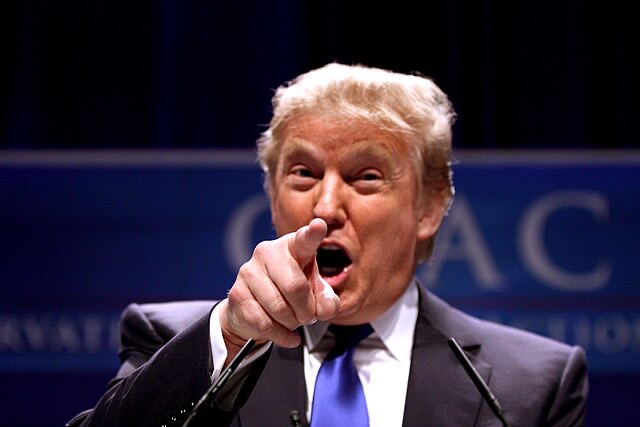In a dramatic shift that’s drawing global attention, U.S. President Donald Trump has publicly denounced Russian President Vladimir Putin following the deadliest aerial bombardment in Ukraine since the war began. The assault, which resulted in the tragic loss of at least 12 lives, including three children, underscores a grim milestone in the conflict’s trajectory. Trump’s strong words mark a surprising deviation from his historically more measured or even admiring tone towards Putin, raising eyebrows both at home and abroad.
The timing of Trump’s condemnation is critical. As tensions mount and the war grinds on, voices around the world are questioning not just Russia’s military strategy but also the West’s response. Trump’s decision to publicly criticize Putin may signal a significant recalibration of his foreign policy outlook — or a strategic move as the U.S. edges closer to the next presidential election. Either way, his words carry weight, especially considering his influence over a large segment of American voters and policymakers.
This article delves into the events that led to Trump’s rebuke, the implications for Ukraine and the global political arena, and what this all could mean for the future of U.S.-Russia relations.
Russia Launches Largest Aerial Assault on Ukraine
Russia’s latest attack on Ukraine was a chilling display of brute force and strategic escalation. It was the largest single aerial strike since the full-scale invasion began. Over 350 drones, alongside multiple cruise missiles, rained down on Ukrainian cities, including Kyiv and Odesa. Ukrainian officials have reported widespread destruction, with residential areas, hospitals, and energy infrastructure being key targets. The scope and intensity of the assault shocked not only Ukraine but the entire international community.
What makes this attack particularly egregious is the reported death toll and the innocent lives lost. Among the 12 confirmed fatalities were three children — their deaths triggering waves of grief and outrage across the world. In addition to the loss of life, critical infrastructure has been compromised, making daily life even more difficult for Ukrainian citizens already worn down by over two years of war.
This strike sends a clear message from the Kremlin — a message that peace talks and ceasefire discussions are off the table for now. Russia seems determined to pursue its objectives through sheer force, regardless of international condemnation or the humanitarian cost.
The Toll of the Attacks
The human cost of this recent escalation is both devastating and deeply personal for millions of Ukrainians. The three children who were killed symbolize the ongoing horror that civilians are enduring daily. Schools, hospitals, and residential buildings bore the brunt of the attacks, leaving behind rubble, shattered glass, and the eerie silence of lives abruptly ended.
Eyewitnesses from Kyiv described scenes of panic and chaos, with people rushing to underground shelters in the middle of the night as air raid sirens blared. Rescue operations have been ongoing, with emergency workers digging through debris to find survivors — a grim routine that has become all too common across the country.
For the Ukrainian public, these attacks are a harsh reminder that the war is far from over. President Volodymyr Zelenskyy addressed the nation soon after, condemning the attacks and renewing his calls for more international assistance. “Every silence from the world gives Putin more power,” he declared, a sentiment echoed by many in Ukraine and its diaspora.
Beyond the immediate deaths and injuries, the strike has reignited fears of further escalations. As Russia grows bolder in its military tactics, the international community faces renewed pressure to act decisively.
Trump’s Strong Reaction to Putin’s Aggression
Donald Trump’s comments in response to the Russian onslaught were uncharacteristically direct and condemnatory. Speaking to reporters in New Jersey, he said of Putin, “He’s gone absolutely crazy.” These remarks mark a sharp departure from the more nuanced or even complimentary tone Trump often used during his presidency when referring to the Russian leader.
For many observers, this change of tone is both welcome and surprising. Trump’s previous stance on Putin — often criticized as overly friendly or deferential — has long been a point of contention. With this statement, Trump appears to be aligning more closely with mainstream Western leaders who have consistently condemned Russia’s aggression.
The former president didn’t stop at rhetoric. He hinted at considering further sanctions if the violence continues, suggesting that a firmer approach toward Moscow might be necessary. While Trump is not currently in office, his words still carry significant weight, especially as he remains a front-runner in the 2024 Republican primaries.
“Absolutely Crazy” — Trump’s Sharp Words
The phrase “absolutely crazy” reverberated through headlines and social media as analysts tried to decipher its implications. Was it a genuine shift in Trump’s worldview, or a calculated political move aimed at broadening his appeal ahead of the 2024 elections?
Many political commentators suggest the latter, pointing out that Trump’s base is increasingly divided on foreign policy. By condemning Putin now, Trump may be trying to position himself as a leader who can be tough on adversaries — a contrast to Biden, who he has accused of being weak and ineffective.
Public and media reactions have been mixed. Some praised Trump for finally speaking out against Russian aggression, while others viewed it as opportunistic and late. Regardless, the statement is likely to impact the ongoing political discourse around the war in Ukraine and America’s role in global security.



